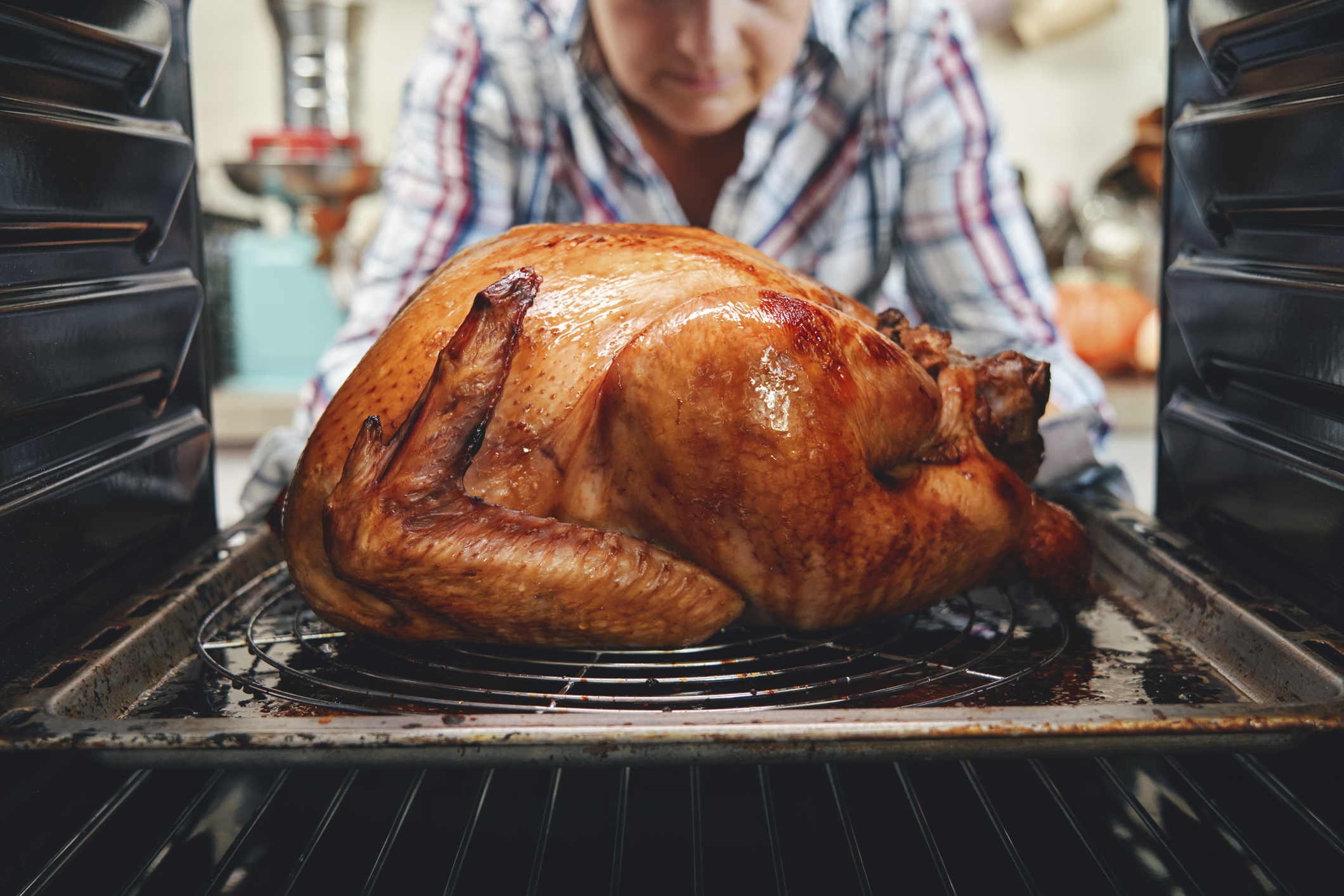
Climate change is the biggest story of our lifetimes, and as with most big, world-defining events, following the narrative usually requires understanding a few basic terms. “Carbon budget,” for instance, is a critical concept: it’s the remaining greenhouse gas emissions humanity can release through the course of the energy transition before we seriously wrench the atmosphere out of whack (collectively, humanity is on track to blow past it).
Here at TIME, we humbly submit a slightly less important concept to that mix, perhaps less crucial for understanding the global emissions crisis, but absolutely essential for understanding the emissions footprint of Thanksgiving dinner. It’s known as the turkey threshold (known by us, that is; we made it up). It represents the distance at which the emissions from driving to grandma’s house for Thanksgiving dinner surpass the emissions from raising and cooking the turkey on the dinner table—a prime holiday-time concern for those interested in reducing emissions from pollution-intensive animal agriculture.
As it turns out, that threshold is rather low. If your family gets in the car and drives a couple miles across town to dinner, the turkey’s emissions (about 29 kg of CO2 for a turkey that feeds 12 people) will be far higher than the journey’s footprint. But as soon as you get even slightly into “long drive” territory, the emissions from just one average gasoline vehicle on the road surpasses those of the entire turkey you’re sitting down to eat. It is that point—72.25 miles round trip, assuming a 20 lbs. turkey—that we propose to call the turkey threshold (it varies by turkey size, of course). That’s not counting that most Thanksgiving dinners probably have multiple vehicles traveling to Nana’s. For the case of passengers traveling in five separate cars, for instance, each car can only travel just over 7 miles each way to stay under the turkey threshold. (Now you know.)
Inevitably, most thanksgiving family gatherings involve far more travel than that—we haven’t even gotten into thanksgiving air travel. But it’s generally safe to assume that in most cases Thanksgiving travel is worse for the climate than the meat you’re consuming when you get there. Stop for a cheeseburger on the way, though, and we’re talking a whole different food/travel emissions balance.
A version of this story also appears in the Climate is Everything newsletter. To sign up, click here.
More Must-Reads From TIME
- The 100 Most Influential People of 2024
- How Far Trump Would Go
- Scenes From Pro-Palestinian Encampments Across U.S. Universities
- Saving Seconds Is Better Than Hours
- Why Your Breakfast Should Start with a Vegetable
- 6 Compliments That Land Every Time
- Welcome to the Golden Age of Ryan Gosling
- Want Weekly Recs on What to Watch, Read, and More? Sign Up for Worth Your Time
Write to Alejandro de la Garza at alejandro.delagarza@time.com